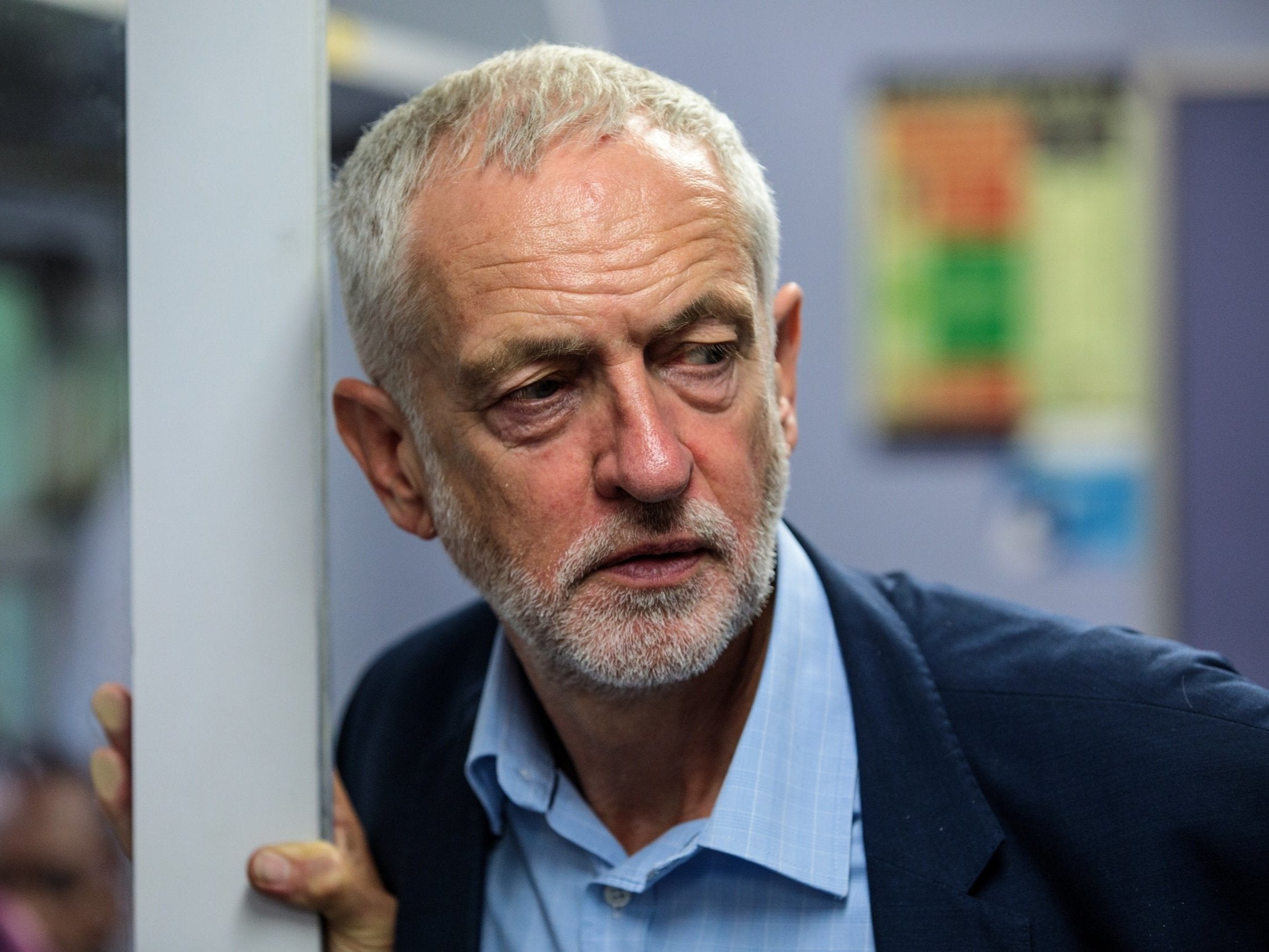Jeremy Corbyn’s parliamentary seat could be axed in Commons shakeup
Final proposals if approved by the Commons will see the number of MPs reduced from 650 to 600

Your support helps us to tell the story
From reproductive rights to climate change to Big Tech, The Independent is on the ground when the story is developing. Whether it's investigating the financials of Elon Musk's pro-Trump PAC or producing our latest documentary, 'The A Word', which shines a light on the American women fighting for reproductive rights, we know how important it is to parse out the facts from the messaging.
At such a critical moment in US history, we need reporters on the ground. Your donation allows us to keep sending journalists to speak to both sides of the story.
The Independent is trusted by Americans across the entire political spectrum. And unlike many other quality news outlets, we choose not to lock Americans out of our reporting and analysis with paywalls. We believe quality journalism should be available to everyone, paid for by those who can afford it.
Your support makes all the difference.Jeremy Corbyn’s Commons seat could be axed and Boris Johnson’s majority challenged in a drastic shakeup of parliamentary boundaries that aims to cut the number of MPs from 650 to 600.
In final proposals set out by the UK’s four boundary commissions for England, Scotland, Wales and Northern Ireland, the Labour leader is the most high-profile politician set to lose his seat with his Islington North constituency abolished.
But the plans are yet to be approved by MPs and Theresa May has shelved a vote to avoid a Commons showdown with her own backbenchers, who are prepared to rebel on the highly contentious issue.
Labour has also said it will oppose the plans, accusing the government of an “undemocratic power grab” in an attempt to benefit the Conservative Party at the next general election.
In the detailed proposals, Mr Johnson, the former foreign secretary, faces a challenge to his 5,034 majority in Uxbridge and South Ruislip, with the seat losing Tory-leaning Yiewsley and gaining the Labour-leaning Northolt.
David Davis, the former Brexit secretary, who resigned from government over the prime minister’s Chequers plans, is also expected to see his Haltemprice and Howden constituency seat axed.
In total, England will lose 32 seats taking the total from 533 to 501 should MPs approve the contentious plans. In Wales, the number of seats will be reduced from 40 to 29 while Northern Ireland will lose one seat. Scotland is expected to see its constituencies reduced by six – from 59 to 53.
Publishing its final recommendations, the independent Boundary Commission for England said it marks the end of a thorough process to build the new map of constituencies.
“We’ve travelled the country, taken account of the 35,000 public comments, and heard many impassioned views about how best to reflect local communities in our recommendations, while ensuring that constituencies are all much more equally represented,” said secretary to the commission Sam Hartley.
He added: “We’re confident that the map we propose today is the best match of the legal rules parliament has set us. It’s now up to parliament to decide whether these boundaries will be used at the next general election.”
Labour’s Cat Smith, the shadow minister voter engagement and youth affairs, said the final recommendations are “nothing but an undemocratic power grab by this Tory government”.
She added: “With no plans to reduce the number of ministers, the government is weakening the role of parliament and creating unprecedented levels of executive dominance at the expense of backbenchers, when parliament is meant to be taking back control.
“Cutting the number of MPs by 50 as we prepare to leave the European Union is further proof this government is clamouring to tighten its grip on power. With the workload of MPs set to rise after Brexit, with thousands of pieces of important legislation expected to come through parliament, it would be utterly ludicrous to go ahead with these boundary changes.
“Theresa May needs to think again. The political context has changed significantly since these flawed proposals were first agreed under David Cameron.”
Join our commenting forum
Join thought-provoking conversations, follow other Independent readers and see their replies
0Comments